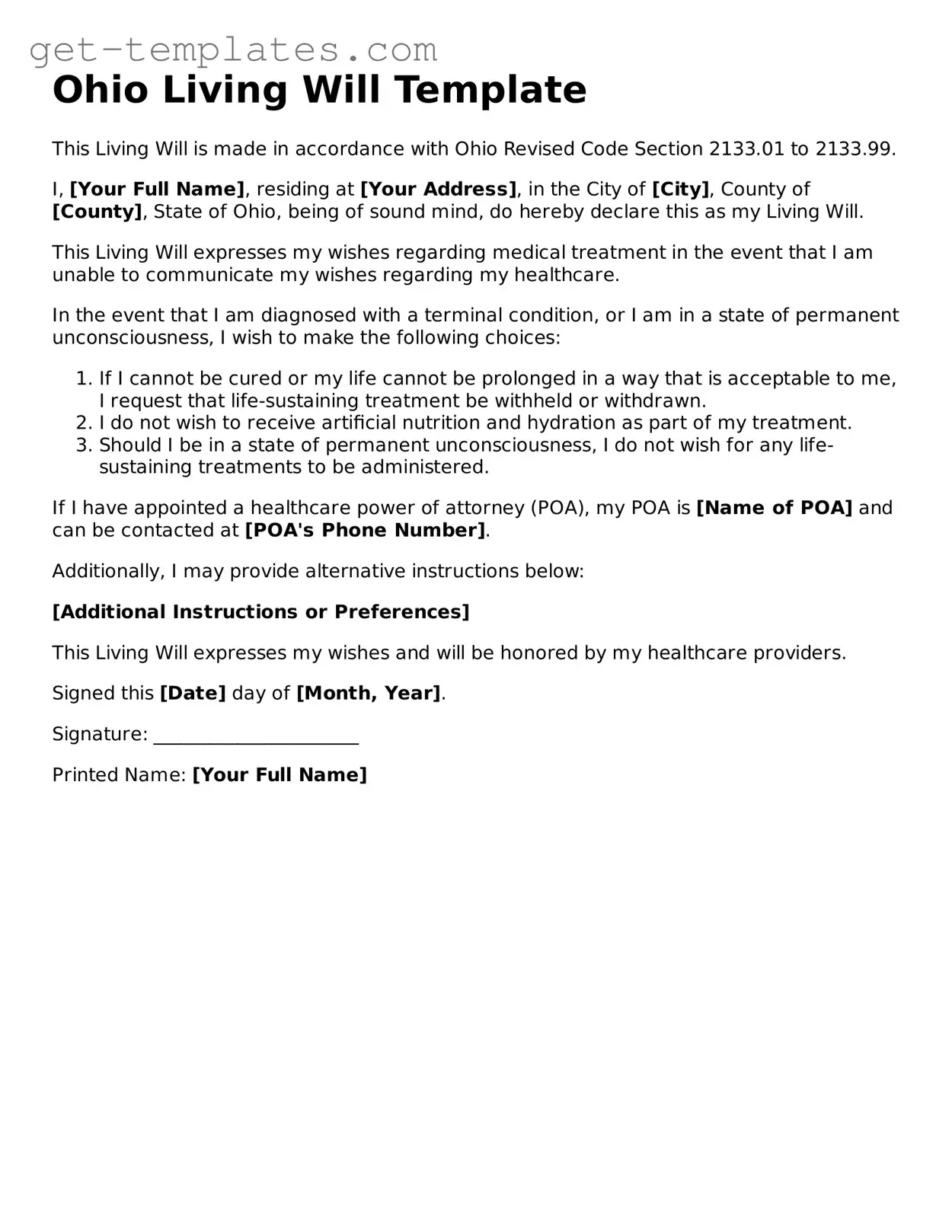Attorney-Approved Living Will Document for Ohio
A Living Will is a legal document that allows individuals in Ohio to outline their preferences for medical treatment in the event they become unable to communicate their wishes. This form provides clarity for healthcare providers and loved ones during critical moments. Understanding its significance can empower individuals to make informed decisions about their healthcare choices.
Get Document Online

Attorney-Approved Living Will Document for Ohio
Get Document Online
You’re halfway through — finish the form
Finish Living Will online — edit, save, download made easy.
Get Document Online
or
⇓ PDF Form
